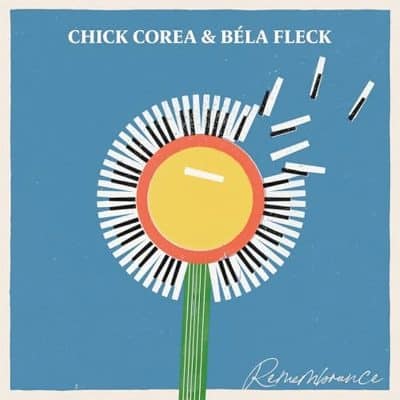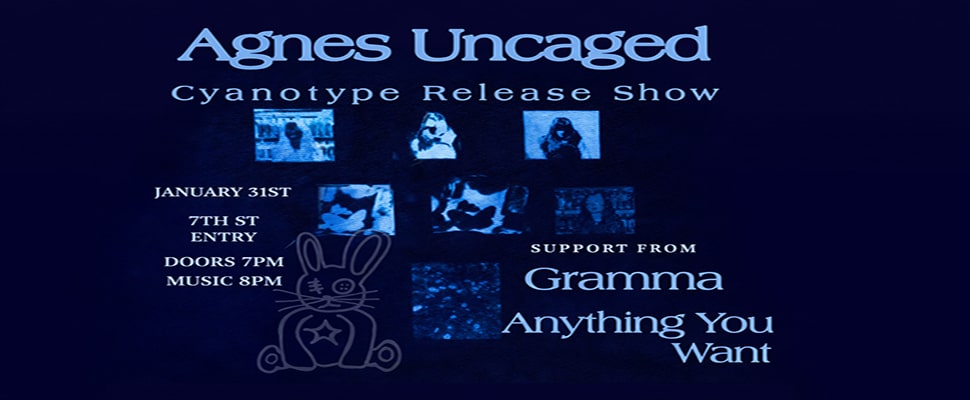Chick Corea and Béla Fleck Remembrance
 Chick Corea and Béla Fleck
Remembrance
Self-released by Béla Fleck
Given that the late Chick Corea’s recording engineer Bernie Kirsh documented nearly every Chick Corea performance live or in the studio, we can expect to hear more from Corea in the future, as we have been since his passing. Yet, the driving force behind this project, Remembrance, previously unreleased Corea and Béla Fleck compositions, has Fleck at the helm. The album follows the duo’s 2007 Latin Grammy winning The Enchantment and aside from the wonderful music, the liner notes from Fleck are a treasure too. Written as if he was handing down this story to his grandchildren, it begins and ends with “I know it sounds unlikely. But it really happened. Once upon a time, I played banjo in a duo with Chick Corea.”
If you loved The Enchantment, then you will savor this one, maybe even more knowing it’s likely the last we will hear from these two masters, who together have earned something like 45 Grammys. The story that Fleck tells begins with his falling in love with Corea’s composition “Spain” while in high school, taking opportunities to catch Corea in live performance and summoning the courage to record “Spain” on his first banjo album in 1979. When meeting Corea at the Grammys twelve years later, after the two had exchanged a few letters, Fleck invited Corea to play on his next project From the Acoustic Planet. One of those tracks was a duet and a few years later Corea’s agent approached Fleck, saying that the pianist wanted to record a duo project. The Enchantment was recorded in three or four days with almost no rehearsal. Prior to and after that recording the duo would tour every couple of years but without new material until 2019 (which was the final tour) when each brought new compositions. Those results are here and more.
Corea’s “Remembrance” and “Continuance” along with Fleck’s “Juno” and “Small Potatoes” are the originals. That concert also included Monk’s “Bemsha Swing” and arrangements of Scarlatti sonatas. While Fleck was anxious to get to the studio to record, Corea informed him that the ever-on-the-job Kirsh had recorded the show. The two conversed during the pandemic exchanging piano and banjo parts and that’s how Corea’s “Enut Nital” (“Latin Tune’ spelled backwards) and the opener, Fleck’s “The Otter Incident” were created. The rest of the repertoire here is a series of five brief improvs, four from Corea and one from Fleck that are interspersed with the other material.
Fleck’s majestic “The Otter Creek Incident” is distinctly his but it shows how skilled Corea was at filling in the spaces. “Juno” was written by Fleck to commemorate the birth of his son of the same name. Though written by Fleck, it captures the youthful, playful nature of Corea that never waned right up to his passing. There’s even a video you may want to check out of Chick sitting at the piano with Juno in his lap, jamming together. “Remembrance” by Corea fuses the feel of a New Orleans funeral march with Latin strains. Yet, besides the joy and the ease the two convey in playing together, what they deliver musically is often challenging too. “Scarlatti Sonatas” demands a solid foundation in classical music. The improvs listed here as ‘impromptus” are a testament to creativity, but Fleck’s intricate, complex “Small Potatoes” is at the apex of challenging, shedding light on Corea’s often overlooked avant-garde approach. He was one of the key players in NYC’s mid-sixties famed loft scene. You may want to check out Blue Note’s Chick Corea – The Complete “IS” Sessions (1969), Early Circle (1970), or Song of Singing (1971) for reference.
The musical chemistry between these two musicians who became lifelong friends is just so palpable; a natural ability to finish the other’s sentence. The dazzling fluidity of each is remarkable, not to mention the unique harmonics they create. This album is not merely an attempt to capitalize on the fame of both musicians as it has compositions that until now, have not been heard. In that sense, it’s a worthy addition to the legacy of both.
Chick Corea and Béla Fleck
Remembrance
Self-released by Béla Fleck
Given that the late Chick Corea’s recording engineer Bernie Kirsh documented nearly every Chick Corea performance live or in the studio, we can expect to hear more from Corea in the future, as we have been since his passing. Yet, the driving force behind this project, Remembrance, previously unreleased Corea and Béla Fleck compositions, has Fleck at the helm. The album follows the duo’s 2007 Latin Grammy winning The Enchantment and aside from the wonderful music, the liner notes from Fleck are a treasure too. Written as if he was handing down this story to his grandchildren, it begins and ends with “I know it sounds unlikely. But it really happened. Once upon a time, I played banjo in a duo with Chick Corea.”
If you loved The Enchantment, then you will savor this one, maybe even more knowing it’s likely the last we will hear from these two masters, who together have earned something like 45 Grammys. The story that Fleck tells begins with his falling in love with Corea’s composition “Spain” while in high school, taking opportunities to catch Corea in live performance and summoning the courage to record “Spain” on his first banjo album in 1979. When meeting Corea at the Grammys twelve years later, after the two had exchanged a few letters, Fleck invited Corea to play on his next project From the Acoustic Planet. One of those tracks was a duet and a few years later Corea’s agent approached Fleck, saying that the pianist wanted to record a duo project. The Enchantment was recorded in three or four days with almost no rehearsal. Prior to and after that recording the duo would tour every couple of years but without new material until 2019 (which was the final tour) when each brought new compositions. Those results are here and more.
Corea’s “Remembrance” and “Continuance” along with Fleck’s “Juno” and “Small Potatoes” are the originals. That concert also included Monk’s “Bemsha Swing” and arrangements of Scarlatti sonatas. While Fleck was anxious to get to the studio to record, Corea informed him that the ever-on-the-job Kirsh had recorded the show. The two conversed during the pandemic exchanging piano and banjo parts and that’s how Corea’s “Enut Nital” (“Latin Tune’ spelled backwards) and the opener, Fleck’s “The Otter Incident” were created. The rest of the repertoire here is a series of five brief improvs, four from Corea and one from Fleck that are interspersed with the other material.
Fleck’s majestic “The Otter Creek Incident” is distinctly his but it shows how skilled Corea was at filling in the spaces. “Juno” was written by Fleck to commemorate the birth of his son of the same name. Though written by Fleck, it captures the youthful, playful nature of Corea that never waned right up to his passing. There’s even a video you may want to check out of Chick sitting at the piano with Juno in his lap, jamming together. “Remembrance” by Corea fuses the feel of a New Orleans funeral march with Latin strains. Yet, besides the joy and the ease the two convey in playing together, what they deliver musically is often challenging too. “Scarlatti Sonatas” demands a solid foundation in classical music. The improvs listed here as ‘impromptus” are a testament to creativity, but Fleck’s intricate, complex “Small Potatoes” is at the apex of challenging, shedding light on Corea’s often overlooked avant-garde approach. He was one of the key players in NYC’s mid-sixties famed loft scene. You may want to check out Blue Note’s Chick Corea – The Complete “IS” Sessions (1969), Early Circle (1970), or Song of Singing (1971) for reference.
The musical chemistry between these two musicians who became lifelong friends is just so palpable; a natural ability to finish the other’s sentence. The dazzling fluidity of each is remarkable, not to mention the unique harmonics they create. This album is not merely an attempt to capitalize on the fame of both musicians as it has compositions that until now, have not been heard. In that sense, it’s a worthy addition to the legacy of both.
- Jim Hynes
Discover more from Making A Scene!
Subscribe to get the latest posts sent to your email.








